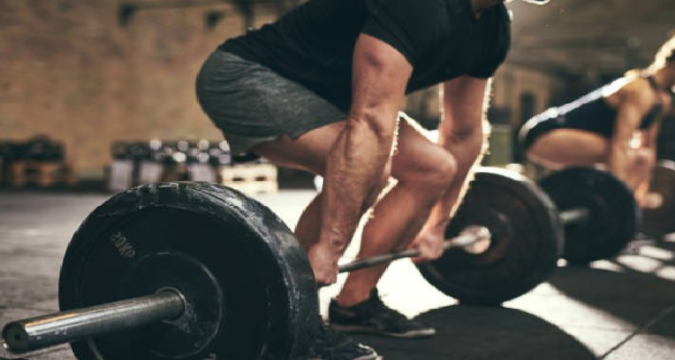
Whether you’re a seasoned athlete or gearing up for your first tournament, getting into peak condition requires both a smart approach and focused training strategies. To compete at your best, you’ll need a combination of physical strength, technical skill, mental sharpness, and balanced recovery. Here’s a breakdown of key strategies to optimize your training, boost confidence, and prepare for tournament success.
1. Setting Clear Goals and Structuring Your Training Plan
One of the most effective ways to prepare for a tournament is to set clear goals that guide your training. Start by defining your primary objectives—whether that’s improving speed, refining technique, building endurance, or mastering specific game skills. Setting goals gives your training focus and keeps you motivated along the way.
From here, create a structured training plan that allows you to progressively build strength, endurance, and skill without overtraining. Divide your training into phases, such as conditioning, skill-specific training, and tapering. Each phase should address different aspects of your fitness. Early on, focus on general conditioning; as the tournament approaches, emphasize sport-specific skills and strategies. A planned approach helps prevent burnout and ensures you’re at peak fitness by game day.
2. Building a Solid Fitness Foundation: Strength and Conditioning
To perform your best, your body needs to be strong, agile, and resilient. Focus on full-body strength and conditioning exercises to build a solid foundation. Compound movements like squats, lunges, push-ups, and deadlifts engage multiple muscle groups, improving your power, stability, and balance.
A mix of aerobic and anaerobic conditioning is also crucial. Cardio activities such as running, cycling, or interval sprints build endurance, while high-intensity interval training (HIIT) or plyometrics (like jump squats or box jumps) build explosive power. The combination of strength and cardio helps improve your stamina and quickness, allowing you to keep up with the pace of a tournament. Incorporate drills that mirror your sport’s specific movements, whether it’s lateral movements for tennis players or quick starts and stops for soccer players.
3. Skill-Specific Drills: Precision and Efficiency
Physical conditioning is essential, but mastering your sport’s skills is just as important for peak performance. Drill repetition helps build muscle memory, making your movements faster and more efficient. If you’re a basketball player, dedicate time to practicing your shooting form, ball handling, and defensive footwork. For runners or cyclists, work on pacing and form. Precision in skill drills will help ensure that your performance remains consistent and accurate, even under tournament pressure.
Integrate practice sessions that mimic game scenarios, such as small-sided games or competitive drills with teammates. These kinds of drills force you to react to unpredictable situations, preparing you for the fast-paced nature of tournament play. Practicing in conditions that mirror real games, like setting a timer or having an audience, can help ease nerves and increase familiarity with in-game pressure.
4. Mental Toughness Training: Focus and Resilience
Success in a tournament is not only about physical ability—it’s also about mental fortitude. Building mental resilience helps you stay focused, calm, and composed in the heat of competition. Visualization is a powerful mental strategy that many top athletes use. Spend a few minutes each day visualizing yourself executing skills, achieving goals, and handling difficult situations. Envisioning success reduces anxiety and builds confidence.
Another powerful mental technique is mindfulness. Staying in the present moment, without judgment, can help you remain focused and adapt to changing situations on the field or court. Many athletes use breathing exercises to manage stress, keep a clear head, and maintain a calm demeanor under pressure. Training your mind to stay focused can make the difference between reacting impulsively or staying composed when it counts.
5. Nutrition and Hydration: Fuel for Performance
Proper nutrition fuels your body, allowing you to perform consistently well during training and tournaments. A balanced diet with lean proteins, whole grains, healthy fats, and a wide range of vegetables and fruits ensures you’re getting the energy and nutrients you need.
Carbohydrates are particularly important in the days leading up to your tournament, as they provide quick and sustained energy. Protein is essential for muscle repair and recovery, especially after intense workouts. Hydration is equally crucial, as even mild dehydration can impact focus and endurance. Drink water throughout the day, and consider electrolyte drinks before and after intense training sessions or on game days.
6. Rest and Recovery: The Overlooked Key to Success
Training hard is only part of the equation. Proper rest and recovery are essential for maintaining peak performance. Intense workouts can lead to microtears in muscle fibers; resting allows these muscles to heal, grow stronger, and be ready for your next session. Aim for 7-9 hours of sleep per night, as deep sleep facilitates muscle repair and mental clarity.
Incorporate recovery techniques like stretching, foam rolling, and massage to release muscle tension and improve flexibility. Scheduling rest days or active recovery sessions (like light stretching or low-impact activities) is also important. These practices allow your body to fully recover while keeping muscles active.
7. The Right Mindset: Compete with Confidence
Finally, approach your tournament with a positive and determined mindset. Remember the hard work and dedication you’ve put into training. Embrace challenges as opportunities to learn and grow, and remind yourself that mistakes are part of the game. A balanced approach to competition, focusing on both performance and enjoyment, will keep your spirits high and help you stay motivated, no matter the outcome.
By following these strategies—structuring your training, building strength, honing skills, fostering mental toughness, focusing on nutrition, prioritizing recovery, and embracing a positive mindset—you’ll be primed for tournament success. With every step, you’re preparing to compete at your peak and make your mark in the game.